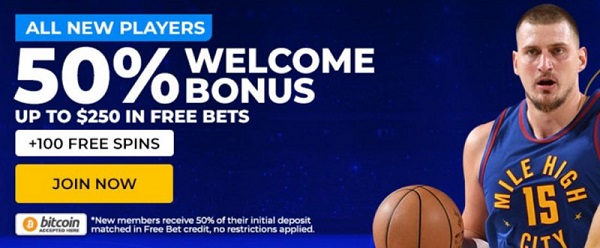How Do Sportsbooks Make Money?

Once upon a time, sports betting was volatile and controversial, just like other forms of gambling. Horse racing temporarily changed the landscape, but because of the number of scandals and fraud associated with gambling in the 1910s, attitudes and legal statuses shifted back and forth.
Then, the Black Sox scandal happened. Eight team members were bribed by a gambling syndicate to lose the 1919 World Series against the Cincinnati Reds. And thus, sports gambling was further tainted. Time went on, and the next big milestone involved Nevada (no surprise there) legalizing sports betting to improve tourism prospects in 1949 – but it didn’t come without its troubles. The federal government imposed a 10% tax on sports bets, and then illegal bookmaking became rampant in the ‘60s and ‘70s.
The tech boom came about in the ‘80s, and the tug of war continued. But thanks to New Jersey’s eight-year battle to get legal sports betting back – the past became nothing but water under the bridge. Sportsbooks are now a big business; as of 2024, there are over 40 legal sportsbooks in the United States. While sportsbooks control their own odds and make money when bettors lose bets and parlays, do these tactics guarantee a profit?
Here are the many ways that sportsbooks make money.
Earning Commissions on the Vig
The vig (vigorish) is essentially the house edge or cut that a bookmaker takes whenever bettors bet on anything. It’s the primary way sportsbooks make a guaranteed profit and is integrated into the odds, so it’s not readily apparent to the public. Looking across different sportsbooks, bettors might notice different lines and odds, allowing them to choose the ones that give the best returns.
The idea of the vig can get complicated, but the gist of the tactic is that sportsbooks set their plus odds lower than their minus odds. For example, you might see a heavy moneyline favorite at -1000 with the underdog at +650. Sportsbooks are protected from potential upsets, while bettors are less likely to risk money on the underdogs.
Expanding Bets Beyond Traditional Wagers
Offering a range of bets beyond the money line helps reel in the bettors, which rakes in the cash. People might be interested in betting on totals, spreads, player props, and even special bets like the Gatorade color at the Super Bowl.
This wide variety of bet options brings in an equally wide variety of bettors – casual bettors who want to put money down on the over-under on how long the national anthem will be, hardcore sports fanatics who want to bet on specific players, and everything in between. It also acts as a diversification strategy, ensuring that the sportsbooks’ risk is spread out over a variety of outcomes.
Real-Time Betting
Traditionally, sports bets were only placed in person. While both pre-game and live bets were possible, live bets were taken to a whole new level with online sportsbooks. As anyone over the age of majority in their region can make an account on a gambling platform and wager a bet on whatever they like, they can capitalize on fluctuating odds down to the second.
For sportsbooks, that means a larger pool of engaged bettors who are continuously betting throughout the course of the game. Maybe someone pre-bet on the Las Vegas Raiders before kickoff, who were previously the moneyline favorites. At halftime, say they’re now losing by a landslide, but they believe in an eventual comeback and want to place another bet for them to win at longer odds. If, for example, the Raiders narrow the gap in the second half, then more and more bettors would be enticed to bet on them.
With such a big surge in live bets, there are two ways that the sportsbook is making a profit – through betting volume and balancing the books.
Promotions and Bonuses
Because of the amount of generous bonuses casinos offer, it might seem as though only the customer profits from these incentives. The reality is that sportsbooks benefit from these just as much or even more than customers do. Not only do they attract plenty of new customers and retain their existing ones, but they also play a bigger game in the broader sphere of the industry.
People are much more inclined to be loyal to sportsbooks that have a better reputation within the sports betting industry, and positive experiences with promotional offers contribute to that. Depending on how enticing these offers may be, customers might even go to bigger lengths to unlock them by meeting the requirements.
Affiliate Marketing
The sports betting world works much like a network. There are the customers, sports leagues, regulators, payment processors, and the sportsbooks themselves working together, as well as affiliate marketing programs to bridge the gap between customers and sportsbooks.
An affiliate marketing tactic might involve targeting fans of a specific sport. For instance, there might be a network of ads that feature basketball star Victor Wembanyama and then a variety of exclusive basketball betting offers like slam dunk odds and playoff sweepstakes to get people to join a specific sportsbook and make bets exclusively on their platform. These affiliates do a lot of heavy lifting for a sportsbook’s exposure, reaching audiences where they are and targeting the right people with the right messages to get them to sign up and, thus, increase revenue.
















